
CPTSD Therapy London Guide
Complex Post Traumatic Stress Disorder, or CPTSD is a psychological condition, commonly resulting from childhood trauma and abuse. Trauma can be inflicted on a child in many ways – physically, emotionally, constant criticism, childhood sexual abuse or neglect.
If you’ve grown up in an environment with abusive, narcissistic, or emotionally immature parents, you may have learnt coping mechanisms which protected you at the time, but are holding you back as an adult.
The trauma from childhood abuse can cause you to unexpectedly react to people or situations in ways that confound you, triggering traumatic memories -overwhelming feelings of fear, rage or shame. These ’emotional flashbacks’ can last from a few minutes to several weeks.
There can also several symptoms associated with C-PTSD:
- Social anxiety
- General anxiety
- Shame and low self worth
- Difficulty relating to other people
- Imposter syndrome
- Self neglect
- Depression
- Codependency
- A strong inner critical voice
- Lack of self-compassion
- An agitated state of mind
- An inability to be expressive
- Lack of motivation
- Low self-confidence
Recovery from CPTSD involves developing a trusting relationship with a trauma therapist in which you have the space and safety to learn to trust other people again. You’ll develop self compassion, and regain a sense of self confidence.
With the support of your C PTSD therapist, you’ll revisit some of those childhood traumas which are still affecting you in adulthood, and learn to spot the triggers of your emotional flashbacks. As your internal awareness develops, the traumas will loose their grip, helping you to stay more calm, centred and in control.
What is C-PTSD?
C-PTSD is a set of defences that a child learns to protect themselves from an abusive or difficult childhood environment. A child doesn’t know that their parents are being mean or neglectful, as they don’t have anything to compare their experience to. They’ll think a parent is angry with them because they’re intrinsically bad, or feel worthless if a parent has no interest in them. In these circumstances the child also feels an underlying sense of shame or guilt from not being accepted, which continues through into adulthood.
Someone with the trauma symptoms of CPTSD can find it hard to feel that they have a right to assert themselves or take on adult responsibilities at work or in relationships. If they’re used to being treated unfairly, they can attract partners and friends who echo their internal beliefs, propagating the belief that they don’t deserve any better.
Parents who are narcissistic, or emotionally immature can be self centred, without the ability to reflect on their own behaviour. With a lack of emotional awareness, they can project the parts of themselves which they don’t like on to their child.
An angry father in denial about his rage, might accuse his sensitive son of being aggressive. Or a mother who struggles with her own creativity might criticise her daughter’s attempts at fictional writing. These compound the traumatic experiences of the child, setting up the conditions for emotional dysregulation, emotional numbness, low self esteem and other psychological problems as an adult.
The child grows up with the an inner dialogue which isn’t their own. Their true voice might be dominated by critical thoughts which they presume to be true. The thoughts are backed up by intense feelings and physical sensations in the body, which are easily triggered by situations and encounters which reconnect an ‘adult child’ back to their childhood.
These thoughts can be identified and examined in therapy to see where they come from, what their purpose was, and whether or not they’re still required. It’s the same with the overwhelming emotions and sensations in the body experienced during flashbacks of earlier emotional states. Once examined closely, they can be seen that they’re not reflective of, or appropriate to the immediate situation.
Traumas and triggers
To understand these states of minds, sometimes called emotional flashbacks, which can be easily triggered with someone suffering form C-CPTSD, it’s necessary to look more closely at how a trauma is created.
A psychological trauma occurs when you’re subjected to a violent or extreme event. As humans we react to a trauma by going into ‘fight or flight’ mode, where the body is rapidly ramped up into the optimal state for energetic short term action.
There are actually more reactions to trauma than just fight and flight. As well as fighting and running away, people and animals also respond to danger by freezing on the spot (freeze response), fainting (flop response) or becoming submissive (fawn response).
These 5 responses: fight, flight, freeze, fawn and flop, are reactions which both animals and humans use to deal with immediate danger. While animals are good at quickly recovering, humans can find it more difficult. If you were subjected to multiple childhood traumas over a sustained period of time, you may have become stuck in one of the trauma responses.
Which trauma response do you have?
Fight Response
Are you a ‘fighter’ type, fiercely protecting yourself, or lashing out when you’re feeling threatened?
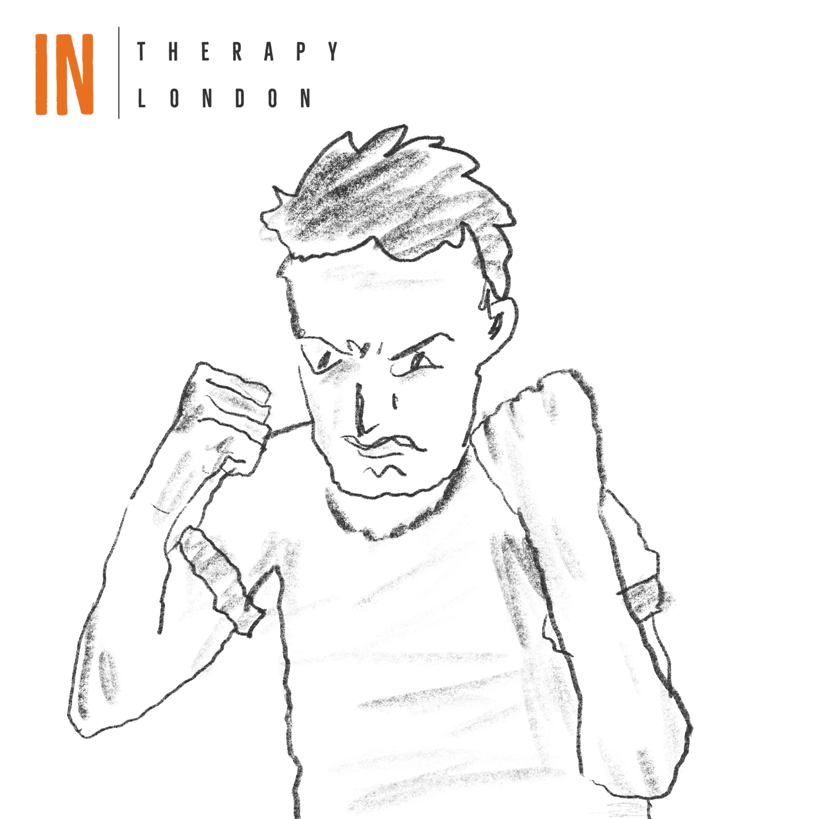
Flight response
Are you an anxious person, on the lookout for danger, tending to run away from difficult situations?
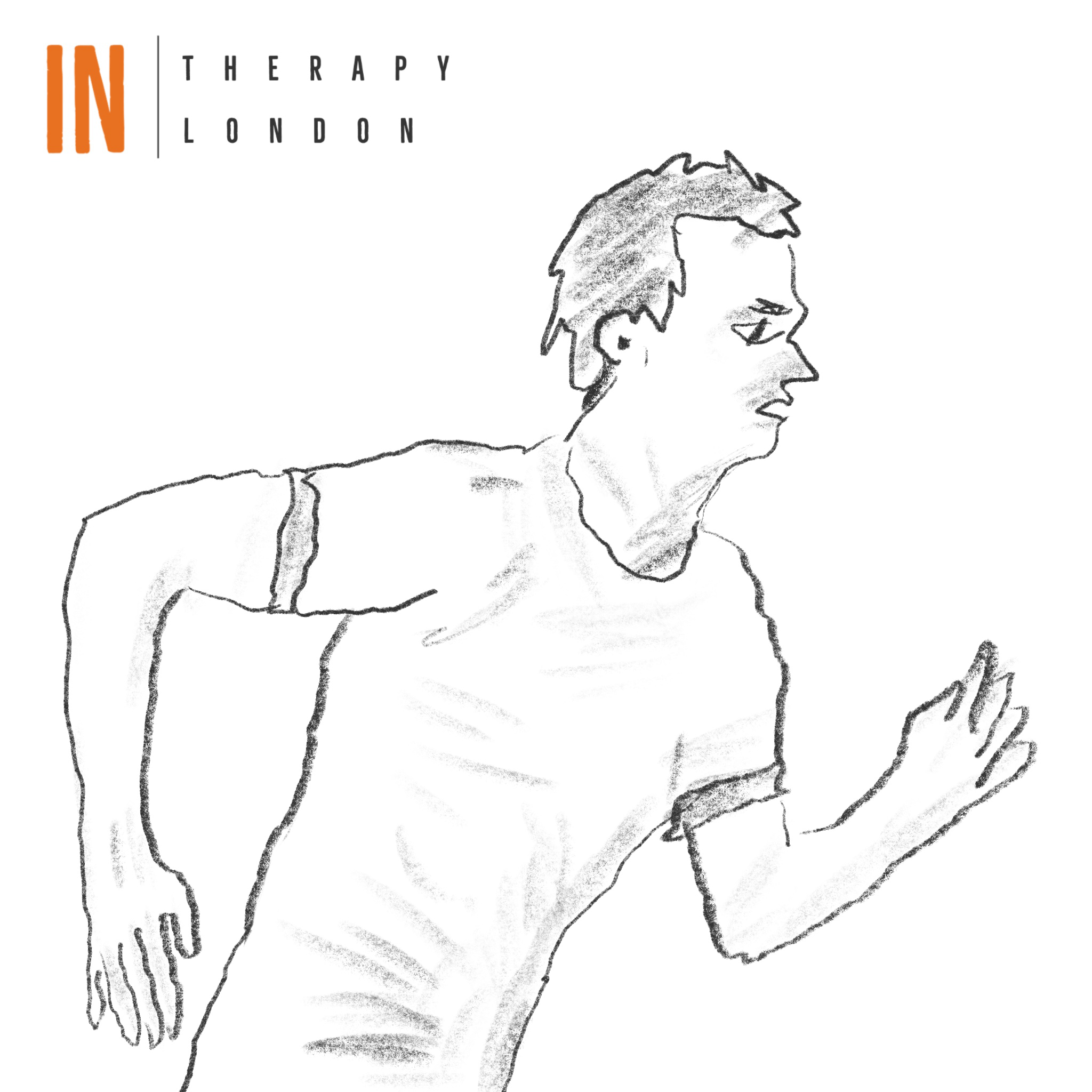
Freeze response
Do you have trouble knowing what you’re feeling, or taking action, and feel paralysed, unable to escape from your predicament?
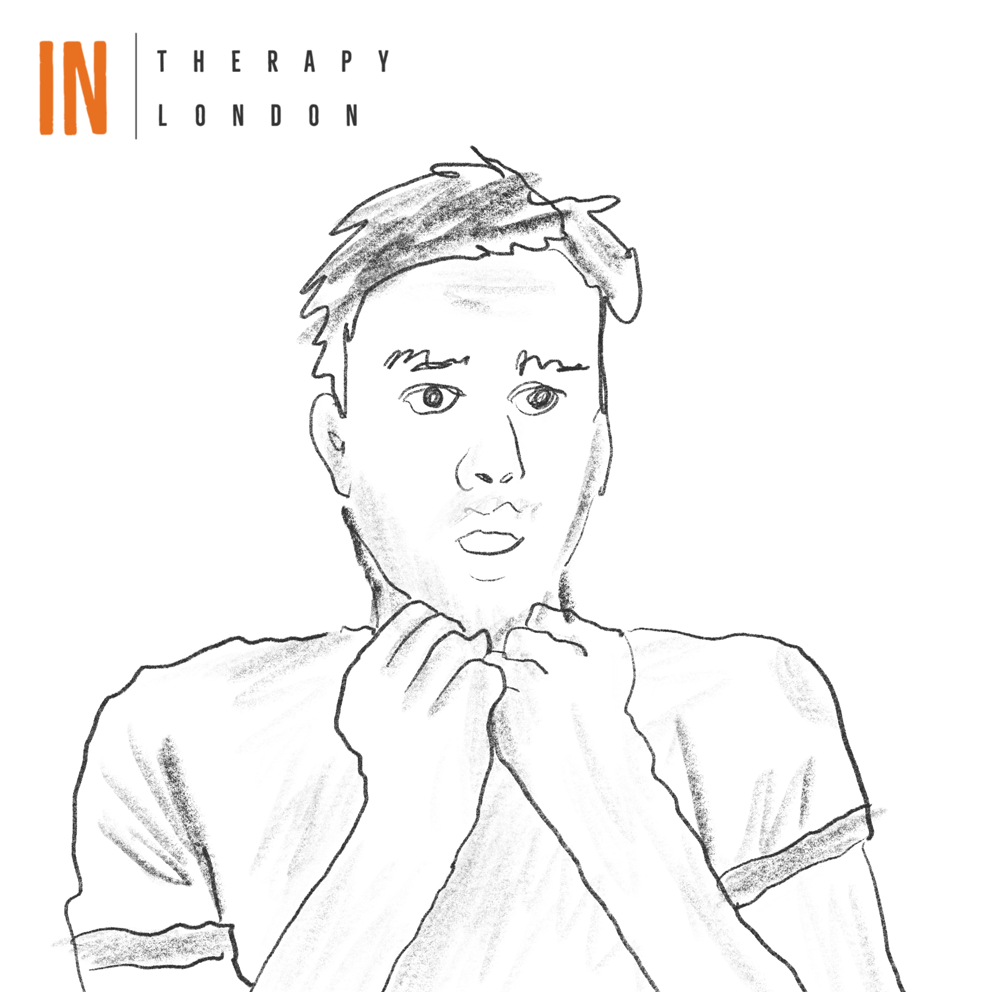
Fawn response
Are you a ‘pleaser’, avoiding conflict, and looking to pacify threatening people or situations at all costs, even if it means you don’t get your needs met?
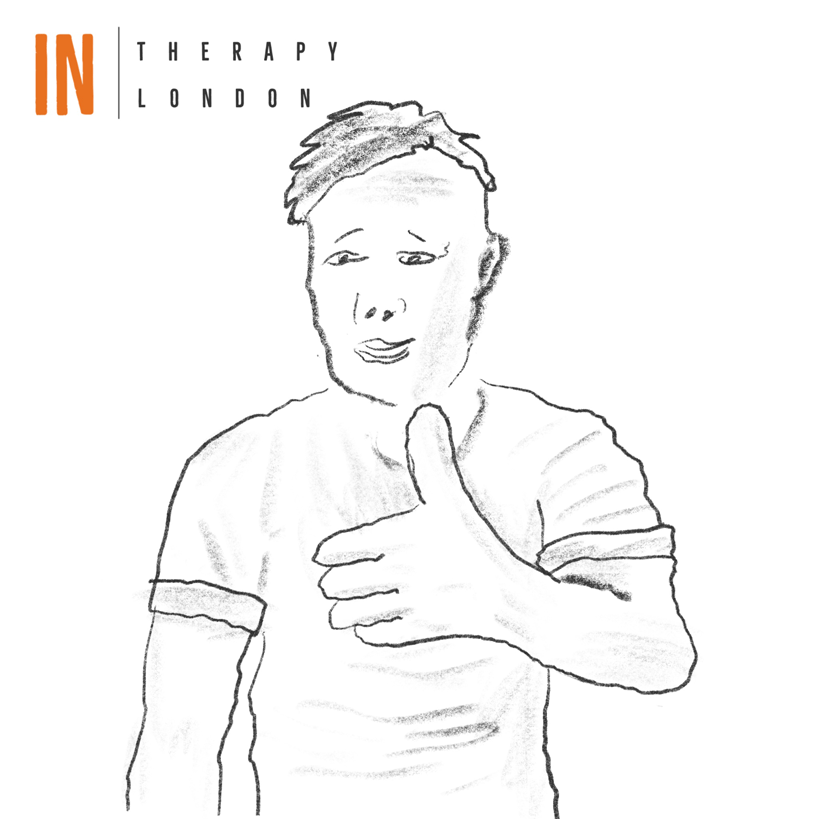
Flop response
Have you resigned yourself to your fate, feeling that resistance to any threat is futile and pointless?
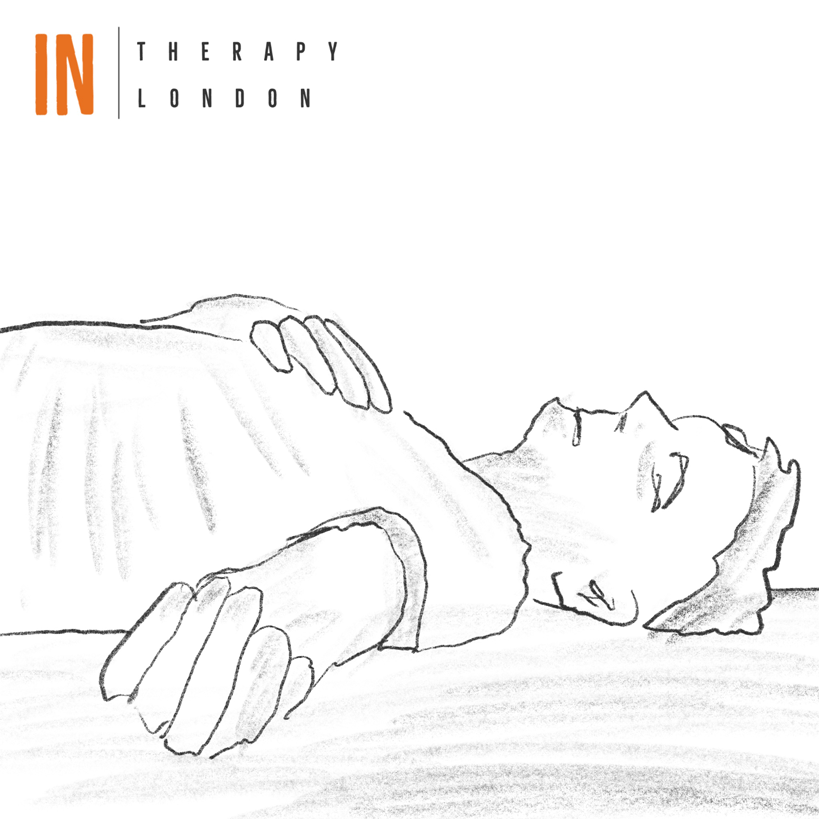
There can also be considerable overlap within these five trauma responses. As part of CPTSD therapy, you’ll learn to recognise the unique way you’ve learned to respond to trauma, and see how it influences your reactions to the people and events in your life.
“Being traumatised means continuing to organise your life as if the trauma were still going on.”
Janina Fisher PhD
CPTSD, trauma and the nervous system
When someone reacts to a traumatic event, or the memory of a trauma during a flashback, it is more than just a mental event. The nervous system in the body becomes hyper-aroused. Physical changes take places too, as cortisol, adrenaline and other hormones are released into the bloodstream.
The feeling of fear is both mental and physical, with the heart beating faster, breathing becoming shallower and faster, and sweating to regulate your rapidly heating body. The body also suppresses the digestive function and makes changes to the immune system.
In a healthy traumatic response, once the danger has passed, the body will quickly return to normal. But people with CPTSD are not able to fully recover from the traumatic experience, leaving the body and nervous system in a state of hyper-arousal.
When this is compounded by multiple traumas over an extended period of time, it can progress into the chronic stress of someone with C-PTSD. This normally happens within a dysfunctional family environment, when a child is vulnerable and doesn’t have the skills to protect themselves from traumatic events, and is unable to escape from the situation. But it can also happen within adult relationships, especially if there’s domestic abuse, sexual assault or abuse, or the threat of domestic violence.
The mind-body connection
The body and mind are intricately connected, and there are many examples of how they interact with each other which we take for granted. When you’re sad, you cry. When you’re nervous, you get the feeling of butterflies in your stomach. And when you’re angry, you feel hot.
These are instances that are familiar to most people, but what you might not be aware of is that every emotion has a corresponding sensation in the body. In C-PTSD counselling, you’ll learn to use the body as a barometer for how you’re feeling on a deeper level. You’ll also get better at identifying the triggers to emotional flashbacks.
Being stuck in a trauma response (fight, flight, freeze, fawn or flop) leaves you in a state of hyper-arousal. As well as the tightness in the muscles, your breathing can become restricted. You can be prone to hyper-vigilance, unable to relax or stay present and centred. The constant low-grade stress can result in psychosomatic symptoms, including digestive problems, insomnia, headaches and stomach ulcers.
If you’ve been subjected to repeated abuse or complex trauma, it’s likely that your body has tightened in an effort to stop unbearable feelings reaching your awareness. Many Complex PTSD sufferers live in a state of physical contraction – a subtle pulling in, which stems from an attempt to brace from, and numb repeated trauma.
This is sometimes called ‘armouring’, because it protects from more trauma. But this is at the expense of being vulnerable and open, which are necessary for having meaningful relationships. When your muscles are contracted from trauma, it can be very difficult to feel anything until there is some relaxation and letting go.
In C-PTSD therapy, you’ll learn techniques for becoming more aware of the body, and the movement of the breath. There’s many approaches, including visualisation, body scans, and meditation techniques. There are are also physical therapies you might want to explore which can be helpful for releasing excess tension, including the Alexander Technique, Rolfing, and Craniosacral therapy.
I worked as an Alexander Technique teacher for many years before I was a psychotherapist, and saw firsthand how releasing tension in the body had a positive and healing affect on mental health.
Mindfulness in C-PTSD therapy
An important component of treating trauma, CPTSD and childhood trauma is the cultivation of mindfulness. With mindfulness, you can develop an a sensitivity to the stream of thoughts, feelings and sensations of the body, which normally lie undetected, around the peripheries of your awareness.
Mindfulness opens up an internal world, which was always there, but largely overlooked. You’ll be able to connect the dots, watching your thoughts arise, and seeing how they relate to emotions. You might notice there’s subtle feelings you don’t like, which you’ve been habitually pushing away. After a while, you’ll develop a curiosity, seeing what happens when you don’t hold the feelings back.
With your new sensitivity and awareness, you’ll be able to recognise the triggers to emotional flashbacks as they arise. In the midst of a flashback, you’ll develop the ability to ‘witness’ your emotions from a different perspective. This can be incredibly liberating – the experience is the same, but you’re not in the middle of it. You’ll be in the present, knowing that the strong feelings are just remnants of the past, temporarily resurfacing.
“The effects of unresolved trauma can be devastating. It can affect our habits and outlook on life, leading to addictions and poor decision-making. It can take a toll on our family life and interpersonal relationships. It can trigger real physical pain, symptoms, and disease. And it can lead to a range of self-destructive behaviours.”
Peter A. Levine
C-PTSD and Social Anxiety
If you’ve grown up in the care of people who have abused your trust, it can be difficult to trust other people once you’re an adult. Your internal world is shaped by your environment at a young age, and it tends to stay with you during adulthood.
However accomplished or outwardly successful and confident you seem, if you’ve been conditioned to see people as untrustworthy and harmful, the world and its contents will appear to be a dangerous place.
That’s why so many people with C PTSD symptoms struggle with social anxiety. If on a deep level, you don’t trust that people have the best intentions towards you, you’ll keep yourself protected. Social spaces will seem unsafe, and potentially traumatising – you might be using alcohol or drugs to cope, or perhaps avoiding them altogether.
At a party, you might be hypervigilant, where the smallest gesture – a disapproving glance, or raised voice can trigger overwhelming anxiety. More structured environments will be easier, where your conversation can be more orientated around work or common interests.
C-PTSD and Relationships
Many people suffering form C-PTSD have relationship problems, as they find themselves attracted to partners who echo the characteristics of an abusive parent. It’s not a conscious process, just a strong pull toward a person who you feel strongly attracted to. It normally takes a while for the relationship to settle into its own dynamic, and by then it can be difficult to leave.
As an adult, you might still be in touch with an abusive parent. This can be enough to keep you in a prolonged traumatic response which can have far reaching consequence on how you feel about yourself.
Narcissistic and abusive parents and partners, can be very good at blurring boundaries to keep themselves in control, so they can gaslight you into thinking you’re wrong. During C-PTSD therapy, you’ll learn how to create firm boundaries which keep you safe and give you the space to be able to grow and develop.
C-PTSD therapy in London
C-PTSD trauma counselling begins with forming a trusting therapeutic relationship with your therapist. This might be your first relationship where you can truly be yourself, and have the courage to talk openly and honestly about your feelings. It takes time to establish trust, which continues and deepens over the duration of the therapy.
Trauma therapy involves the use of mindfulness to identify feelings and thoughts that you may not have been aware of. You’ll learn to observe the critical voice in your head to see if it’s helpful to you, or if it needs re-evaluating. As you look back at your life, there will be traumas to work through as you begin to rebuild your sense of self.
By connecting to your body, you’ll learn to relax and let go of the tension which has been acting as a defence against painful emotions such as shame and rejection.
The therapy sessions provide a safe, confidential space, where you can explore your relationship issues, and learn the skills for connecting with others on a more intimate level. A sense of spontaneity and fun often arises, as triggers become less frequent, and emotional flashbacks loose their power.
Conclusion
I have a special interest in C-PTSD, and offer treatment at my private practice in Central London. I take a person-centred approach, meaning that I am non-judgemental, and see clients as equals, collaborating on your healing journey together.
If you’re suffering from Complex Post Traumatic Stress Disorder, please don’t hesitate to get in touch to discuss your needs and arrange an initial consultation.
